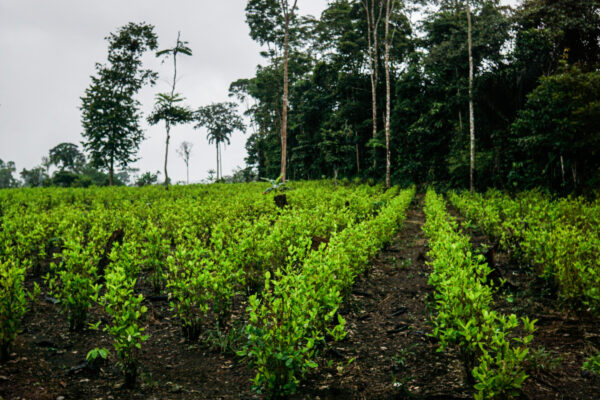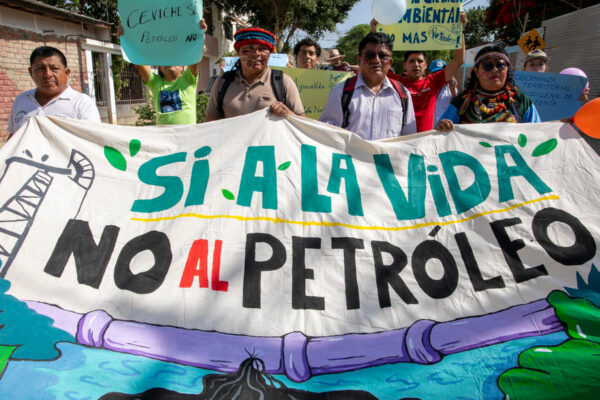We express solidarity with the victims of the violence unleashed in Ecuador and demand that the government effectively address the issue of organized crime. Inflammatory statements and reckless measures are not effective and exacerbate the situation. As Ecuadorian civil society, as organizations and individuals advocating for human rights, we express our solidarity with the families of all the victims of the escalating violence plaguing the country.
For the past three years, we have alerted both the institutions and the international community about the increase of violence, evident since the first prison massacre in February 2021, as well as the ineffective response from the government: repeated declarations of states of emergency and mobilization of armed forces that are ineffective in their scope and execution and do not respond to a comprehensive plan for citizen security.
The violence that has erupted in prisons, controlled by transnational organized crime with the complicity of the government, has spread to neighborhoods, cities, and provinces, especially in the most impoverished, racialized sectors and territories where the government does not guarantee fundamental human rights.
Organized crime has permeated all official institutions and weakened their role in ensuring citizen security. Infiltration has been evident in political, police, military, and judicial ranks, co-opted by organized crime. Thus, the recent “escape” of leaders of criminal gangs or the existence of weapons into detention centers is only possible with the complicity of government officials. However, no government measure has been directed comprehensively to cleanse and strengthen institutions or to confront the privileges and financing systems of these criminal structures.
The serious and escalating acts of violence in the last 48 hours, including kidnappings, car bombings, threats, deaths from stray bullets, assassinations, riots in detention centers, and other actions carried out by organized crime gangs in various areas of the country, have plunged us into chaos and create a profound sense of helplessness.
In response to this extremely grave situation, the current government has once again resorted to the same recipe: declaring a state of emergency, mobilizing armed forces, and imposing a nationwide curfew. Additionally, it has asserted the status of “combatants” to criminal gangs and declared the existence of an “internal armed conflict.”
This declaration of internal armed conflict under the International Humanitarian Law raises various doubts about its reasonableness and insufficient motivation. Furthermore, there is concern about the lack of guarantees for the rights of the civilian population that is not involved, does not participate, nor benefits from the actions of these criminal groups that, as we have already pointed out, have permeated various neighborhoods and territories beyond the institutional framework. Without these guarantees, anyone can become a victim of the excesses of conflicting actors – both state and non-state.
The declaration of internal armed conflict grants criminal gangs the status of “belligerent agents,” meaning combatants with a structure, ideological basis, and political goals, aspects not identified in the organized crime gangs taking over the country. What is even more serious is that the declaration leaves open the possibility of identifying new groups as “non-state belligerent actors” without clear criteria for distinguishing who is considered “terrorists.” When the definition of “terrorists” falls under the discretion of the security forces – infiltrated by organized crime or not – any person can be labeled as such.
In this context of “internal war” against a diffuse enemy – not subject to any human rights or humanitarian law rules, not clearly identifiable, and camouflaged in residential areas – we are all potential victims of the crossfire between the security forces and organized crime. Anyone could be at risk of extrajudicial execution, declared a “false positives”, leading to a lengthy struggle for truth and reparations for the families of victims, which has already happened in several cases brought before international judicial bodies.
That risk increases when it comes to young men, impoverished individuals, racialized foreigners, activists, and human rights defenders. Armed conflicts escalate violence towards the most vulnerable civilian population, including women, children, adolescents, and diverse gender identities, as well as their recruitment and the exacerbation of xenophobia, etc. The region’s history, our country’s history, highlights these and other risks.
Therefore, the undersigned organizations:
- Reiterate our solidarity with all victims of the serious security crisis in Ecuador, especially those directly affected in their immediate surroundings, families, neighborhoods, and workplaces. With all those who have suffered and continue to experience distress and fear for their safety and that of their loved ones.
- Strongly reject the organized crime groups that have taken over prisons and committed more violence on the streets of the country.
- Categorically reject the corruption of government officials, including politicians, police, military, judges, by organized crime groups that are largely responsible for the failure to address the issue previously and the mafia-like peace that is now exploding against the civilian population.
- Reject the exploitation of the security crisis to make decisions that generate more violence, human rights violations, and/or promote impunity for perpetrators.
- Denounce that the hasty and unsubstantiated declaration of an “internal armed conflict” increases the risks for the civilian population caught in the present and future hostilities, with no guarantees of distinction and protection from the so-called non-state belligerent actors.
- We demand that the Ecuadorian government use appropriate and effective responses to address the security crisis. These include urgently designing and implementing a comprehensive citizen security plan built through participatory processes with a territorial and human rights focus; regaining control of detention centers; restricting and monitoring sources of funding for organized crime; purging state institutions from the infiltration of criminal gangs, among other measures.
- We insist that, given the state of unease and insecurity, permanent channels of communication and information directed at the population be established regarding the structural actions undertaken by the executive branch and the security forces to safeguard the physical integrity of the population and the rule of law.
- We call on the United Nations office in Ecuador, the Inter-American Commission on Human Rights (CIDH), international human rights defense organizations, and other international human rights bodies, within the framework of their mandates and objectives, to remain vigilant of the situation and assist Ecuador in fulfilling its international human rights obligations.
- We demand that the Constitutional Court subject to thorough constitutional scrutiny: the state of emergency decree of January 8, 2024, and the complementary decree of January 9; the agreement between Ecuador and the United States for combating insecurity in Ecuador; and the “security” questions posed for a popular consultation. When addressing these matters, the Constitutional Court must fulfill its role and demand comprehensive solutions from the executive branch, framed within the fulfillment of its national and international human rights obligations, rather than endorsing ineffective and reckless responses.
Combating transnational organized crime in Ecuador requires responsible, technical, and coordinated measures with the international community. Above all, it requires the political will to cleanse institutions and law enforcement agencies subjected to criminal gangs and to cut off funding sources. Without that, the use of security forces, now based on a hasty and irresponsible declaration of an “internal armed conflict,” will leave structures intact, continue strengthening organized crime now with the status of “combatants,” and keep the civilian population in terror and at risk.
Alianza por los Derechos Hermanos Ecuador
Comisión Ecuménica de Derechos Humanos (CEDHU)
Amazon Frontlines (AF)
Comité́ de Derechos Humanos de Guayaquil (CDH-GYE)
Centro de Apoyo y Protección de los Derechos Humanos, (SURKUNA)
Fundación Asociación Latinoamericana para el Desarrollo Alternativo (ALDEA)
Acción Ecológica
Fundación Alejandro Labaka
Amazon Watch (AW)
Asociación de Propietarios de Tierras Rurales del Norte del Ecuador (APT-Norte)
Colectivo de Geografía Crítica del Ecuador
Observatorio Minero Ambiental y Social del Norte del Ecuador (OMASNE)
Colectivo Yasunidos
BOLENA-Género y Diversidades
Colectiva de antropólogas
Las Comadres













